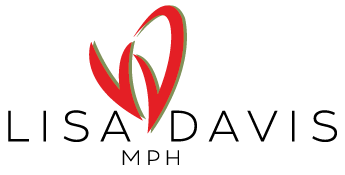
MADISON, Wis., May 9, 2018 – A recent survey conducted by HealthyWomen, in collaboration with Exact Sciences, found that women 50 years and older ranked colon[1] cancer as the second-most concerning cancer type after breast cancer. The survey, which analyzed the behaviors of more than 1,000 women, found that although respondents identified colon cancer as a concern, a significant number of those surveyed indicated they had not yet followed recommended guidelines and been screened for colon cancer. Further, of those surveyed who had not been screened, 30 percent said they avoided colon cancer screening because they did not want to have a colonoscopy.
“Even though most women are aware that they should be getting screened for colon cancer, some just don’t want to deal with an invasive colonoscopy.” said HealthyWomen’s CEO and RN, Beth Battaglino. “This survey shows that there is a great need to go from awareness to actually getting the screening done, and the availability of other colon cancer screening options should be discussed and offered during conversations between women and their health care providers.”
The American Cancer Society estimates colon cancer will cause more than 23,000 deaths among women this year, making it the third leading cause of cancer deaths among women in the U.S.[i] Early detection is essential because when colon cancer is caught early, 90 percent of all cases are treatable.[ii] Increasing awareness of the different types of screening options available is necessary in order to increase the number of women getting screened for colon cancer.
While many people are familiar with colonoscopy, colon cancer screening guidelines include other options for women over the age of 50 who are at average risk.3 These include multitarget stool DNA test (Cologuard), fecal blood test, CT colonography (also known as a virtual colonoscopy) and sigmoidoscopy. Cologuard, a noninvasive screening test, is included on equal standing among the colon cancer screening options included in the United States Preventive Services Task Force (USPSTF) guidelines.3
Additional highlights from the survey include:
• Of the women who said their health care providers recommended colon cancer screening, only 30 percent said their provider discussed more than one screening option.
• 48 percent of women surveyed had not heard of Cologuard but once told what it was, 63 percent said they would be very likely to use the test.
The American Cancer Society recommends colon cancer screening for men and women of average risk for developing colon cancer starting at age 50, in order to detect, and even prevent, colon cancer.[iii] Women are encouraged to talk to their health care providers to determine what colon screening option may work best. To get more information, women can visit www.new50.com, an educational resource made available by Exact Sciences that aims to encourage people 50 and older to talk with their health care provider about colon cancer screening, including the modern, noninvasive options that meet the needs of the current generation.
About HealthyWomen:
HealthyWomen is the nation’s leading independent, nonprofit health information source for women. Our mission is to educate and empower women to make informed health choices for themselves and for their families. For nearly 30 years, millions of women have turned to HealthyWomen for answers to their most personal health care questions. Consumers, health care providers, nonprofit and corporate partners and the media trust HealthyWomen as a valued and reliable health information source.
Nothing is more important to our health than access to competent care and the safety of our medications. HealthyWomen works to educate women about policy issues that may affect their health. We promote the importance of medical research and the need for women to participate in clinical trials to improve women’s health now and for future generations. We support the need for continued funding for medical research and research on sex differences. HealthyWomen collaborates with our many advocacy partners and to ensure that legislators make women’s health a primary focus. For more information, please visit HealthyWomen.org.
About Exact Sciences Corp. and Cologuard:
Exact Sciences Corp. is a leading molecular diagnostic company and the maker of Cologuard, a noninvasive screening test for people age 50 and older with average risk for colon cancer. Included among recommended colon cancer screening options by the U.S. Preventive Services Task Force guidelines, Cologuard is the only FDA-approved test of its kind that uses advanced technology to detect changes in stool DNA that can indicate precancer and cancer.[iv],[v]
Cologuard was approved by the FDA in August 2014 and results from Exact Sciences’ prospective 90-site, point-in-time, 10,000-patient pivotal trial were published in the New England Journal of Medicine in March 2014. Cologuard is included in the American Cancer Society’s (2014) colorectal cancer screening guidelines and the recommendations of the U.S. Preventive Services Task Force (2016) and National Comprehensive Cancer Network (2016).
Cologuard is intended for the qualitative detection of colorectal neoplasia associated DNA markers and for the presence of occult hemoglobin in human stool. A positive result may indicate the presence of colorectal cancer (CRC) or advanced adenoma (AA) and should be followed by diagnostic colonoscopy.
Cologuard is indicated to screen adults of either sex, 50 years or older, who are at typical average-risk for CRC. Cologuard is not for everyone; not for high risk individuals, including those with a family history of colorectal cancer, a personal history of colorectal cancer or advanced adenoma, IBD and certain hereditary syndromes. Positive Cologuard results should be referred to diagnostic colonoscopy. A negative Cologuard test result does not guarantee absence of cancer or advanced adenoma. Following a negative result, patients should continue participating in a screening program at an interval and with a method appropriate for the individual patient. Cologuard performance when used for repeat testing has not been evaluated or established. Rx only.
For more information on Exact Sciences, please visit the company’s website at www.exactsciences.com, follow Exact Sciences on Twitter @ExactSciences or find Exact Sciences on Facebook.
